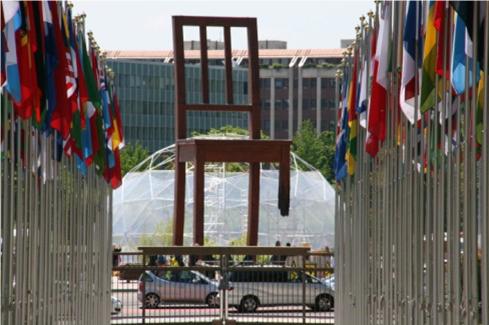The co-signing Organisations welcome and support the priorities of the newly appointed Special Rapporteur on Contemporary Forms of Slavery Including Its Causes and Its Consequences, Ms. Urmila Bhoola, and stand ready to further collaborate with her for the fulfilment of the mandate. They support various facets of her strategy plan, especially the focus on access to work for young people and on eliminating migrant slave labour. Contemporary forms of slavery continue to exist across both developed and developing countries, and efforts to combat such injustices must remain a vital priority for all stakeholders.
The co-signers also recognize that women, low-skilled migrant workers, indigenous people, children, youth, internally displaced persons and other marginalized groups subjected to discrimination are most at risk and vulnerable to exploitation. When human persons live in vulnerable conditions, they are more susceptible to entrapment in unfit working situations and financial dependency on employers who exploit their services. Moreover, if proper legal protections have not been assured or implemented in the work environment, labourers are easily exposed to physical and/or verbal abuse.
The international community, including governments, employers and workers organizations, the private sector and civil society, must maintain and increase efforts to eradicate poverty through the promotion of decent work, good quality jobs and social protection, for all workers in all sectors of the economy, including the informal economy. For work to be decent, it must be “work that expresses the essential dignity of every man and woman in the context of their particular society”, as also was stipulated in the Universal Declaration on Human Rights:
“1) Everyone has the right to work, to free choice of employment, to just and favourable conditions of work and to protection against unemployment.
2) Everyone, without any discrimination, has the right to equal pay for equal work.
3) Everyone who works has the right to just and favourable remuneration ensuring for himself and his family an existence worthy of human dignity, and supplemented, if necessary, by other means of social protection.
4) Everyone has the right to form and to join trade unions for the protection of his interests.”
However, in today’s globalized world, work is increasingly informal, precarious and unprotected. We express particular concern about the situation of young people and migrant workers who, despite being an important part of the solution to the economic crisis, face more acute and difficult challenges in this regard.
Young people, especially those living in rural areas and working in the informal economy, face many difficulties in the world of work. Although they possess professional skills, they are forced to work without contracts, or with part-time agreements and precarious salaries. Many others are unemployed. Governments, workers and employers, as well as civil society organizations and business leaders, should ensure that young people have access to work and can enjoy decent working conditions and social protection, including when they have left school and entered the labor force.
With regard to migrant workers and their family members, the co-signers are convinced that their labor and earnings make a substantial contribution to positive development and to reduction of poverty both in countries where migrants work as well as in their countries of origin. Despite these contributions, however, many millions of migrants moving within their region or across continents, including significant numbers of farm workers and domestic workers, both documented and undocumented, are subjected to working conditions that are profoundly indecent. The co-signers urge governments, employers and workers, and civil society organizations to work together to ensure that all migrant workers and their families benefit from the same rights, assume the same responsibilities, and are treated in the same manner as any other worker in the country where they live.
Finally, specific attention should be paid to fundamental principles and rights at work as well as to the provision of adequate, fair, and portable social protection, at levels that conform to universal human rights and international labour standards. Equally important are efforts to eradicate all exploitative work and any other forms of modern-day slavery as well as to establish efficient redress mechanisms for survivors. It is duty and responsibility of all stakeholders involved in the world of work to cooperate in the achievement of these goals. When all are engaged through a true spirit of justice and fairness, such commitment represents a source of hope.
This joint Statement at the 27th Regular Session of the UN Human Rights Council (September 2014) – Clustered Debate with the Special Rapporteur on Contemporary Forms of Slavery, Including Its Causes and Consequences, submitted by Caritas Internationalis (International Confederation of Catholic Charities) and subsequently affirmed by Association Points-Coeur, Associazione Comunità Papa Giovanni XXIII, Company of the Daughters of Charity of Vincent of Paul, Dominicans for Justice and Peace (Order of Preachers), Edmund Rice International, International Catholic Child Bureau, International Institute of Mary Our Help of the Salesians Sisters of Don Bosco IIMA, International Kolping Society, International Young Christian Workers, International Movement of Apostolate in the Independent Social Milieu, Pax Romana (International Catholic Movement for Intellectual and Cultural Affairs and International Movement of Catholic Students), VIDES International (International Volunteerism Organization for Women, Education, Development), and World Movement of Christian Workers.



Leave A Comment
You must be logged in to post a comment.